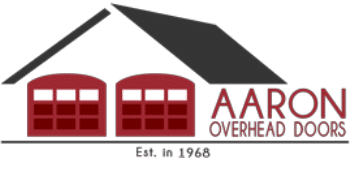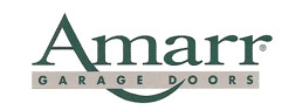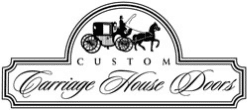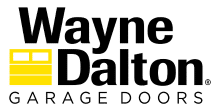
How To Fix a Noisy Garage Door?
Is your garage door annoyingly loud? A noisy garage door is one of those everyday annoyances that sneaks up on you. Until it’s loud enough to wake the neighbors. But the good news? You can usually fix it yourself with a little time and the right know-how.
A loud garage door is a sign that safety and function of the door could be compromised. If you have a garage door from Monterey to Santa Cruz here are some of the answers you are looking for.
Why Is Your Garage Door So Loud?
That noise is your garage door's way of crying out for help. Over time, moving parts wear down, hardware loosens up, and dirt creeps in. It’s like driving a car without ever changing the oil—eventually, things start to squeal.
What Different Noises Mean
-
Grinding: Probably worn-out rollers.
-
Squeaking: Needs lubrication.
-
Clanking or Banging: Loose or broken parts.
-
Rattling: Loose nuts, bolts, or hinges.
-
Whining: Possibly the opener motor.
Common Causes of a Noisy Garage Door
Before you grab your tools, you’ve got to know what you’re dealing with.
- Loose Hardware: Garage doors open and close thousands of times a year. That kind of action can shake bolts and screws loose. Rattling or clanking noises often point to loose metal parts knocking together.
- Worn-Out Rollers: If you hear a grinding or squeaking noise, those rollers could be the culprit. Metal rollers without ball bearings wear down fast and scream when they do.
- Lack of Lubrication: This is probably the most common reason for noise. Dry metal parts rub together and make a racket. Regular lubrication can silence the screams.
- Damaged Hinges: Hinges take a beating over time. If one’s cracked or bent, it could throw off the alignment and make the door groan when moving.
- Unbalanced Door: If the garage door springs are worn out, the door might not move evenly. That imbalance can create jerky motion and loud thuds.
- Noisy Garage Door Opener: Sometimes, it’s not the door—it’s the opener. Chain-drive models, in particular, are known for being loud.
Here are some suggestions to improve a loud and annoying garage door:
Let’s break it down into manageable steps.
Step 1 – Inspect the Entire System
Start with a full visual inspection. Look for rust, dirt, loose parts, and signs of wear. Don’t forget to unplug the opener first!
Step 2 – Tighten Loose Bolts and Screws
Use a socket wrench to tighten all nuts and bolts along the track and frame. Just don’t overtighten—you could strip the threads.
Step 3 – Replace Worn Rollers
If your rollers are metal and noisy, swap them out for nylon ones. They’re quieter, require less maintenance, and last longer.
Step 4 – Lubricate Moving Parts
Use a garage door lubricant (not WD-40) on:
-
Hinges
-
Springs
-
Rollers
-
Tracks (lightly)
Avoid overdoing it—a little goes a long way.
Best Lubricants for Garage Doors
Despite its popularity, WD-40 is a degreaser, not a lubricant. It can actually strip away the grease you need.
Silicone vs. Lithium Grease
-
Silicone Spray: Best for plastic or rubber parts. Good for light lubrication.
-
White Lithium Grease: Best for metal-on-metal parts like rollers and hinges.
Step 5 – Check the Hinges
Inspect for cracks or warping. If you spot damage, replace the hinge to prevent misalignment and extra noise.
Step 6 – Balance the Garage Door
Disconnect the opener and manually lift the door halfway. If it doesn’t stay in place, your springs are out of balance. This is a job for the pros.
Step 7 – Quiet the Garage Door Opener
Add rubber vibration pads under the motor mounts. If you’re using a chain-drive opener, consider upgrading to a belt-drive model for a quieter experience.
Noisy Garage Door FAQs
It might be unbalanced or have a broken spring. That bang is the door struggling to lift correctly.
Yes, a little sound is normal, but loud squeaks, bangs, or grinding aren’t. They usually mean something needs attention.
DIY fixes might cost under $20. Professional repairs can range from $100 to $300, depending on the issue.
The Importance of Addressing Noise Early
Ignoring the noise doesn’t just annoy your household; it can also lead to bigger, more expensive problems. Fixing the sound now can save you from a full-blown repair later.
Signs It’s More Than a DIY Fix
-
Broken springs
-
Bent tracks
-
Door doesn’t open/close properly
-
Loud banging even after maintenance
Cost vs. Safety
Sure, DIY saves money—but garage door springs are under high tension. If you’re unsure, call a pro before someone gets hurt. Contact Aaron Overhead Door today for solutions to all of your garage door problems by calling (831) 219-8648 or contact us online with any questions.
Garage doors need a periodic garage door lube applied to the moving parts and every year to two a professional service safety inspection and tune up.
Serving Monterey, Santa Cruz and San Benito Counties
Aaron Overhead Door installs and repairs all types and brands of residential garage doors from Monterey to Santa Curz. A garage door tune up also will help fix any noisy garage doors!













